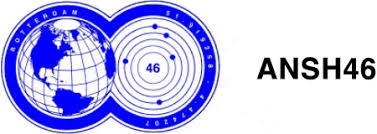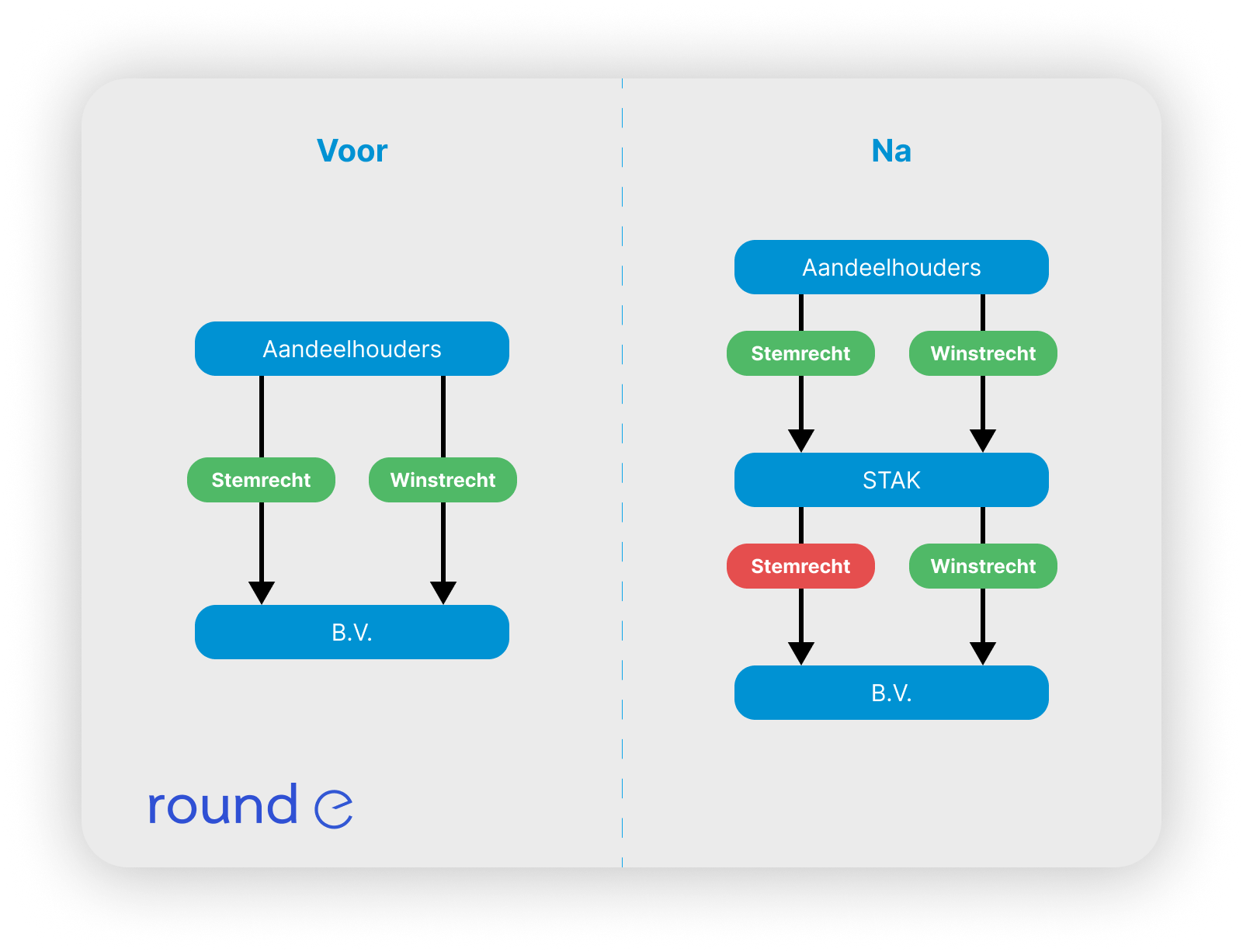Looking for a Depositary Receipt plan?
We are setting up a certificates plan within a week. Book your free intake now.


































































What does participation through depository receipts mean?
A commonly used solution in the Netherlands is the issuance of shares to a (yet to be established) foundation, which in turn issues depositary receipts (also called certificates of shares) to employees. By doing so, a separation is created between the economic rights (dividend) and the legal rights (voting rights) which are attached to the shares. The shares are held by the foundation and it issues depositary receipts to the employees with the obligation to distribute the existing proceeds immediately to the employees. By issuing depositary receipts, the employees don't have the rights that are attached to the shares other than economic rights.

The foundation, the employer and the employees jointly come to an agreement. Setting up a foundation forces the employer and the employee to draft an additional agreement to safeguard themselves in certain situations, such as when the employee becomes ill, commits fraud or breaches a contract that is in place. This agreement will deal with the basic terms and conditions, such as: good / bad leaver conditions and competition clauses.
As you can imagine, this construction needs involvement from a lot of experts, such as notaries, tax advisors and valuation experts. This construction adds an extra entity, a foundation, which forces you to maintain additional records for the company, in addition to keeping track of all issued and distributed receipts.
depositary receipt plan Advantages:
- Does not affect the liquidity of the company
- Creates one of the highest forms of engagement from employees, but does not grant any shareholders rights to employees other than economic rights
depositary receipt plan Disadvantages:
- Tax risks
- Valuation needed when an award takes place
- Dilution of shares
- Setup and maintenance costs are high in comparison to other incentives
Tax implications
The awarding of a depositary receipt could be considered as wage for the employee in case he pays less than the market value for the shares at the moment of awarding. In that case, the difference between the paid price (if any) and the market value qualifies as wages and will be taxed accordingly against a progressive tax rate of 37,10% up to 49,5%. The employer is obliged to withhold and pay these wage taxes. Common practice is that the employee only has to pay the nominal value of the depositary receipts. As a result of this, the tax risks of awarding depositary receipts are relatively high as there is a major chance that the employee has been benefited by such an awarding. Therefore, the market value needs to be determined at the time of the awarding to quantify the tax liability. In light of this, it is crucial that a proper valuation is performed. The Dutch tax authorities will look at the valuation with a critical eye. Such a valuation should therefore be performed by a valuator to determine and mitigate the tax liability. Without a valuation, the company will run a tax risk as it is uncertain whether the employee has been benefited by the awarding. In the worst case, the tax authorities may levy additional assessments with high fines.
































































Certificates of Substantial Interest Shares
If the acquired certificates constitute 5% or more of the company's capital, these interests will be considered a so-called 'substantial interest' and all income from the certificates (dividends and capital growth) will be taxed in box 2. It is common practice in the Netherlands for the employee in such a case to set up their own holding B.V. that holds the certificates of the company. Since the holding company has at least a 5% interest in the company, the certificates will qualify for the participation exemption. As a result, all dividends and capital growth received by the holding on the certificates will be exempt from Dutch corporate income tax. Naturally, when the holding company distributes certificates to the employee/shareholder, the dividend will be taxed at the applicable rate.
Depositary receipts Box 2 or Box 3
If the acquired certificates constitute 5% or more of the company's capital, this will be considered a 'substantial interest' and all interest will be taxed in box 2. If the interest is less than 5%, it will be considered a 'box 3 asset' and will be taxed on a notional income based on the value of the certificates on January 1 of each fiscal year (in 2024). Actual dividends or capital growth on the certificates will not be taxed, which can be advantageous in the case of significant capital growth (due to an exit). Note, however, that it is unclear how box 3 will change in the coming years. Contact us so we can help you with the appropriate structure.
Conclusion
Depositary receipts are a solid structure for employee participation, but come with a complicated and detailed structure which demands involvement of several external parties. That said, depositary receipts are common in the Netherlands and often used. Therefore setting up such a structure is relatively easy.
Why RoundE?
RoundE is your partner in employee participation plans. Instead of hiring expensive lawyers to set up your participation plan, we developed in-house software to streamline this process: saving you time and money
Quality
Our plans are checked by both tax and fiscal specialists. You also get a , so the contract fits your needs perfectly
Fair pricing
We besparen kosten door ons bedrijf online te runnen en het hele proces te automatiseren, waardoor we zeer concurrerende prijzen kunnen aanbieden.
Premium service
You can contact us at anytime and one of our legal experts will be ready to help you. With any purchase, you also get a free consult with one of our experts
